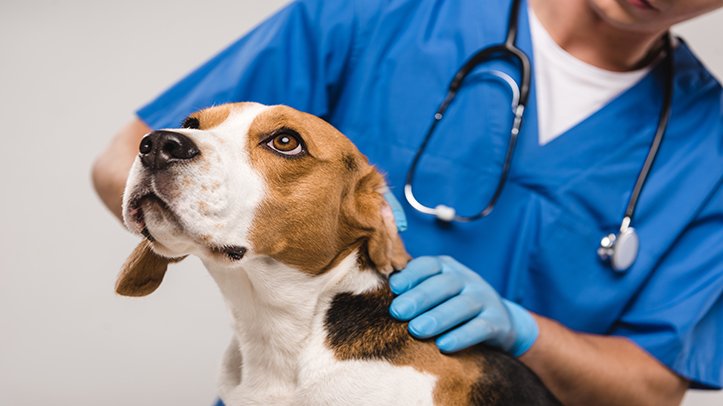The British Veterinary Association (BVA) has published its full joint response to five ‘working papers’ published by the Competition and Markets Authority in February, which outline the CMA’s current assessment and emerging views as it continues its Market Investigation into UK veterinary services for household pets.
BVA said the papers clearly show that the CMA has been listening to the concerns raised by it and other veterinary bodies and is working hard to understand the complexities and nuances of both the veterinary landscape and how clinical services are delivered.
BVA has previously detailed the very challenging landscape the veterinary profession is operating in, and the CMA’s acknowledgement of the significant changes the sector has undergone over the last 10 to 15 years is welcomed, the association said.
The CMA also has recognised that the Veterinary Surgeons Act 1966 is outdated and has not kept up with changes in the industry, although BVA acknowledges this represents a longer-term solution to some of the concerns highlighted during the course of the investigation.
Together with the British Small Animal Veterinary Association (BSAVA), the British Veterinary Nursing Association (BVNA), the Society of Practicing Veterinary Surgeons (SPVS) and the Veterinary Management Group (VMG), BVA has responded to the CMA’s consultation suggesting client-facing solutions which could be implemented in the short to medium term, whilst avoiding unintended consequences.
BVA expanded on its response during its formal evidence hearing with the CMA Inquiry Group on March 14, which it attended alongside BSAVA, BVNA, and the Federation of Independent Veterinary Practices (FIVP).
This in-person meeting was an important opportunity to represent the views of the profession and influence the CMA’s thinking before it publishes its proposed remedies in April.
Transparency and choice for clients
BVA agrees there is a lack of available and comparable information available to pet owners on price, quality or business ownership. Information about the ownership of vet businesses should be provided to clients in the terms of business, readily available on the practice website, and at the practice premises.
Transparency around costs and the true value of veterinary care is key to giving clients choice. However, BVA does not support a ‘one-size-fits-all’ approach in the shape of an online comparison tool for pricing – or quality outcomes measures – as this risks diminishing the value of veterinary care, fails to take into account the critical importance of contextualised care, and could lead to misleading comparisons and potentially misinform consumers.
The way in which veterinary care is delivered and valued is far removed from the way consumers behave when shopping around for more ‘transactional’ services such as insurance or utilities. Clients who frequently switch practices risk fragmented care for their pet, potentially leading to suboptimal treatment and communication, and additional cost.
Medicines
To facilitate choice with regard to medicines there should be a consistent approach with practices proactively offering a prescription where clinically appropriate and providing clients with dispensing options, alongside clear communication regarding the cost of the prescription. Prominently displaying the fees most commonly associated with administering and dispensing medicines should be relatively simple to implement.
BVA does not support imposing a maximum charge for issuing a written prescription as this would result in prescription fees becoming standardised, with most clients likely paying the maximum. Instead, practices should clearly display their prescription fee to help clients make an informed decision.
Dismantling the Cascade and allowing human generic drugs to be prescribed to animals brings risks to both animal welfare and antimicrobial resistance (AMR). There is a role for RCVS and VMD in providing improved clarity around the application of the Cascade to support vets in decision-making.
Regulatory framework
More could be done to promote the RCVS Code, including changes and additions to it, and to ensure that all registrants are up to date and compliant. RCVS would need access to a much wider range of sanctions to support this.
BVA strongly supports the CMA’s emerging view that Registered Veterinary Nurses (RVNs) could be more fully and effectively utilised within existing legislation and that the protection of the veterinary nurse title would enhance transparency and consumer confidence.
A formal, agreed and consistent complaints process for the veterinary sector, that is both pragmatic and proportionate, should be introduced as part of Supporting Guidance to the RCVS Code and then made part of the requirements of mandatory practice regulation. There is also scope for better promotion of the Vet-Client Mediation Service (VCMS) both within the professions and to clients.
Responding to the CMA working papers, BVA president Dr Elizabeth Mullineaux, said: “These papers clearly show that BVA’s work representing the views and concerns of the profession is cutting through with the CMA. It has adapted its approach, and recognised our calls for legislative reform and a new Veterinary Surgeons Act, whilst acknowledging the dedication of vet teams to both patient and client care.
“The CMA is right, to ensure animal welfare we need a thriving veterinary industry that works for both vet businesses and clients and we’ve been clear that we fully support greater transparency around vet fees and business ownership to ensure healthy competition; consumer choice; and diversity of business models.
“We’ve urged the CMA to ensure that any proposed remedies, including those relating to medicines, are carefully considered and introduced in a way that allows vet businesses to adapt, as well as avoiding any unintended consequences and increased pressure on the veterinary profession. We do, however, recognise the need for change, and we are keen to play our part in supporting a well-functioning market.”


